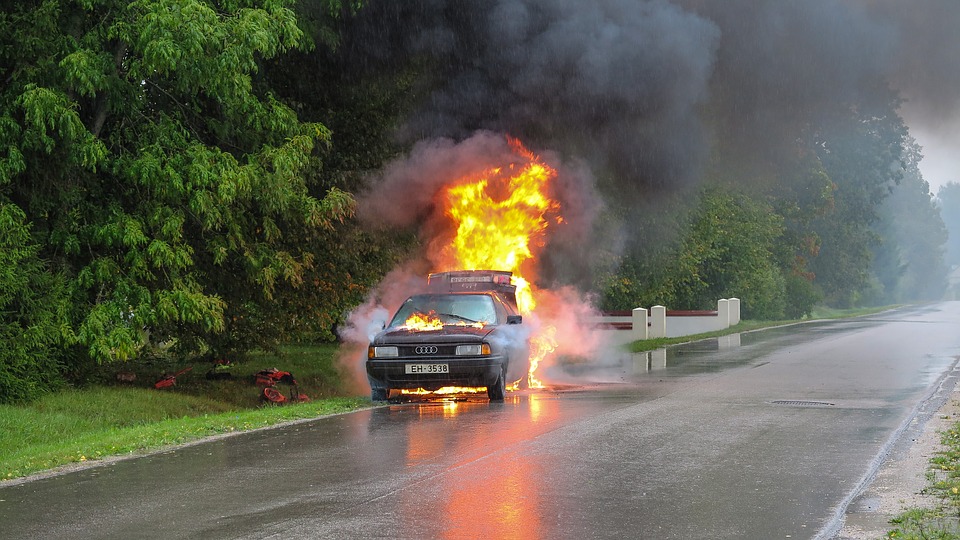Car accidents are a common yet often overlooked aspect of daily life, with the National Highway Traffic Safety Administration reporting over 6 million crashes annually in the United States alone. This staggering statistic highlights the critical need for drivers to be well-versed in accident procedures and legal rights.
Understanding these elements can be pivotal in the aftermath of an accident, where decisions can have significant legal and financial implications. As we delve into this topic, we’ll explore frequently asked questions that arise during such incidents, guiding you through essential steps and considerations.
In navigating these complex situations, many find it beneficial to get help from a car accident lawyer, ensuring informed decisions and adequate representation. This article aims to equip you with knowledge and insights, structuring our discussion around six key questions to help you navigate the often challenging aftermath of a car accident.
What Should I Do Immediately After a Car Accident?
Your foremost priority should be safety in the immediate aftermath of a car accident. Start by moving to a secure location to avoid further hazards. Next, assess yourself and others for injuries; promptly call emergency services for assistance if anyone is hurt. Once safety is ensured, begin documenting the scene.
This involves taking clear photographs of the vehicles, road conditions, and any relevant signage and exchanging contact and insurance information with the other party involved.
How Do I Exchange Information and Why Is It Important?
Exchanging information after car accidents is a critical step in ensuring a smooth resolution to the incident. Here’s what you should gather from the other party:
- Contact information: Names, addresses, and phone numbers.
- Insurance details: Insurance company name and policy number.
- Vehicle information: Make, model, color, and license plate number.
Not admitting fault at the scene is crucial, as this can complicate legal and insurance proceedings. Remember, determining fault is a matter for insurers and possibly the courts, not the individuals involved in the accident.
Understanding the legal requirements for exchanging information is also key. This process is not just about courtesy but is a legal obligation in many jurisdictions. Failure to exchange the correct information can result in legal penalties and complicate your insurance claims process.
When and How Should I Report a Car Accident?
It’s crucial to know when legal obligations necessitate reporting an accident. Car accidents involving injuries, significant property damage, or blocking traffic require immediate notification to the police.
To report, call local law enforcement or 911, providing concise yet detailed information about the incident. Additionally, promptly inform your insurance company, regardless of fault, to initiate the claims process. Failure to report car accidents, especially when legally mandated, can lead to penalties, complications in insurance claims, and potential legal consequences.
Should I Seek Medical Attention, Even If I Feel Fine?
Even if you feel unharmed after a car accident, seeking medical attention is crucial. Some injuries, like whiplash or internal trauma, may not manifest symptoms immediately. A medical check-up serves two key purposes: it ensures your well-being and creates a medical record, which can be vital for insurance or legal matters.
Additionally, some injuries only present symptoms days later, so early medical evaluation can be critical in effectively identifying and treating such delayed-onset injuries.
How Do Insurance Claims Work After Car Accidents?
Navigating insurance claims post-accident involves understanding key steps. Promptly file a claim with your insurance company, detailing the accident’s specifics. When dealing with insurers, differentiate between your policy and the other party’s; each may cover different aspects. For a smoother process:
- Gather comprehensive evidence (photos, police reports).
- Keep detailed records of all communications.
- Know your policy’s coverage limits.
- Be honest and concise in all statements.
These steps can significantly streamline your insurance claim process.
Do I Need a Lawyer After a Car Accident?
Deciding whether to seek legal counsel after a car accident depends on several factors. It’s advisable to consult a lawyer if the accident resulted in significant injuries, fatalities, or complex liability issues.
A lawyer can navigate the intricacies of your case, from proving the elements to negotiating with insurance companies to representing you in court if necessary. To find the right lawyer, look for expertise in car accident cases, check their track record, and ensure they communicate clearly and effectively about your case.
Understanding what to do after car accidents is crucial for every driver. Being well-prepared and informed can make a significant difference in handling the situation effectively and legally. Remember, the key to road safety lies in responsible driving practices.
Always prioritize safety for yourself and others on the road. With this knowledge, you can approach any unforeseen circumstances with confidence and the understanding necessary to protect your rights and well-being.


